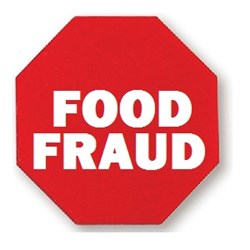8 Actions To Stop Food Fraud

By Sam Lewis

After the publication of a long-awaited report assessing food integrity, the UK government is promising proactive solutions in food laboratories, along with improved supply-chain audits, to curb the uprising trend of food fraud.
After 2013’s horsemeat scandal that swept across Europe, Professor Chris Elliott from Queen's University Belfast was given the task of completing a report and determining solutions to stop the practice of food fraud. According to the report, “Food fraud may be costing UK food businesses a substantial amount of money and risks, causing significant reputational damage. Importantly, some of the examples uncovered pose food-safety risks. However, due to factors such as a lack of intelligence-based detection, the scale of the problem remains unknown.” Elliot is calling on not only the UK’s government, as well as the food industry itself, to step up practices to eliminate food fraud.
Consumers First
Making food safety and authenticity of food products the first priority will always keep consumers safe, loyal, and protect each company’s brand. Elliot hopes the government and food makers will “implement an annual targeted testing program based on horizon scanning and intelligence, data collection, and well-structured surveys.”
Zero Tolerance
Elliot urges the UK’s government and food makers to adopt a zero-tolerance policy to food fraud. Within this approach, industry would ask a set of “searching questions” when it appears a situation is too good to be true. The zero-tolerance approach would also include endowments that protect whistleblowers.
Gather Intelligence
For the zero-tolerance approach to be effective, proper intelligence must be gathered. Elliot wants this to be a key focus of the industry with the FSA (Food Standards Agency) leading the efforts of collecting and analyzing food industry intelligence.
Protection Of Lab Services
Elliot’s report calls for sustainable lab services using standardized, validated methods. In doing so, the government should create standardized methods for lab technicians to use during testing for food authenticity. The government should also collaborate with other parties interested in fighting food fraud to create “Centers of Excellence,” and thus a framework for standardized testing. Finally, Elliot believes this project should be able to be evaluated by the public and amended should the public decide it needs to be.
Better Auditing
Audits will improve by conducting fewer, but more effective and efficient audits for third-party accreditation bodies. These parties will arrive to facilities unannounced and carry out food sampling duties.
Governmental Support
In order for government to improve its assistance in taking down food crimes, it needs to provide better, coordinated support for the FSA. The government should be “re-affirming its commitment to an independent Food Standards Agency,” reads the report.
Improved Leadership
If food fraud and food crimes are to be halted, better-quality leadership is needed. Elliot believes creating a unit completely dedicated to stopping food fraud hosted by the FSA is the first step in improving leadership.
Upgraded Crisis-Management Systems
Elliot recommends ensuring all incidents of food fraud are regarded as a public health risk until proven otherwise. He urges the FSA to coordinate with governing bodies how to plan and organize responses to incidents of food crimes and provide contingency plans as soon as possible. Finally, Elliot wants the government working closely with the FSA to make sure each member knows their duties prior to another food crime incident.
